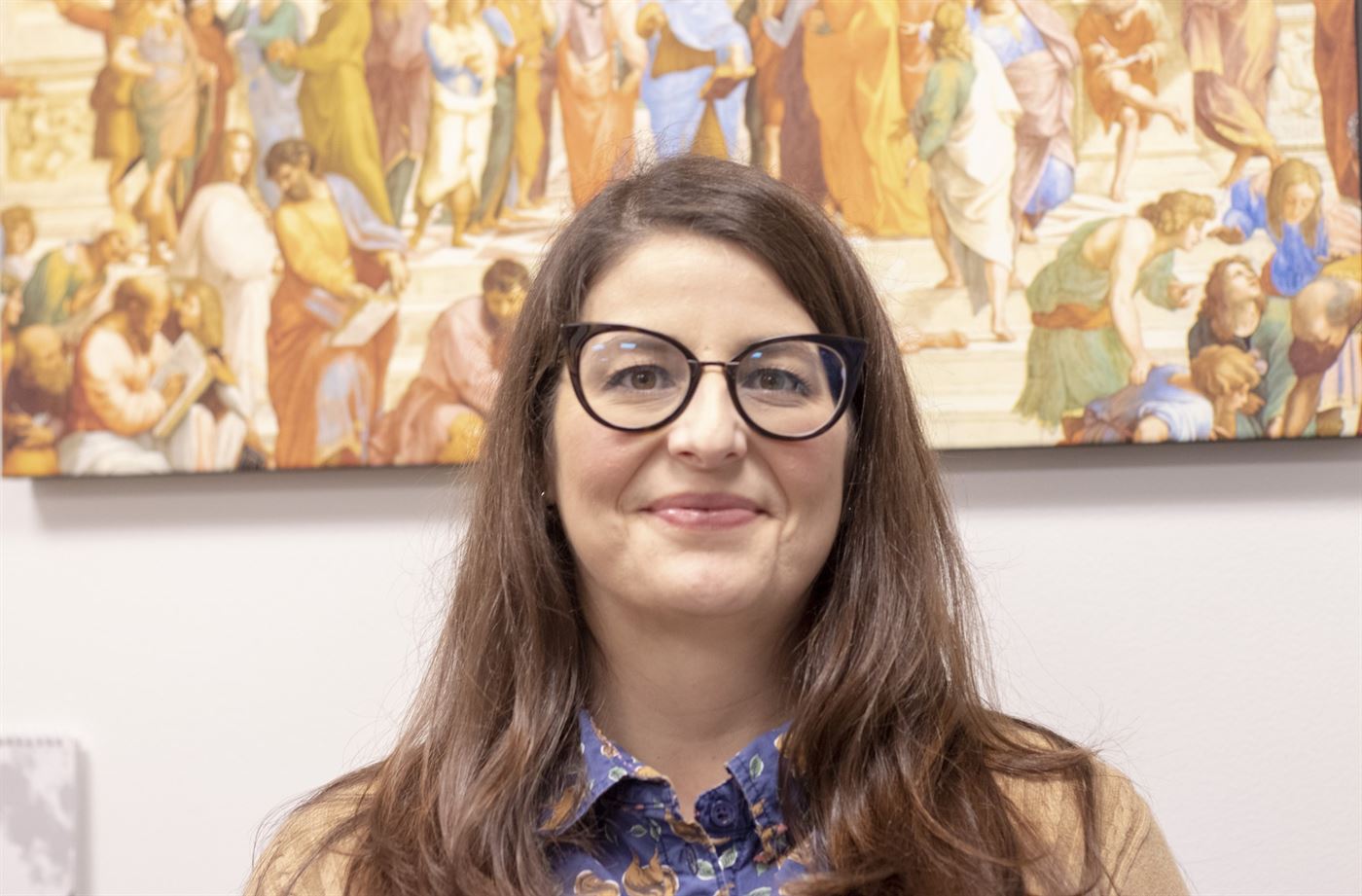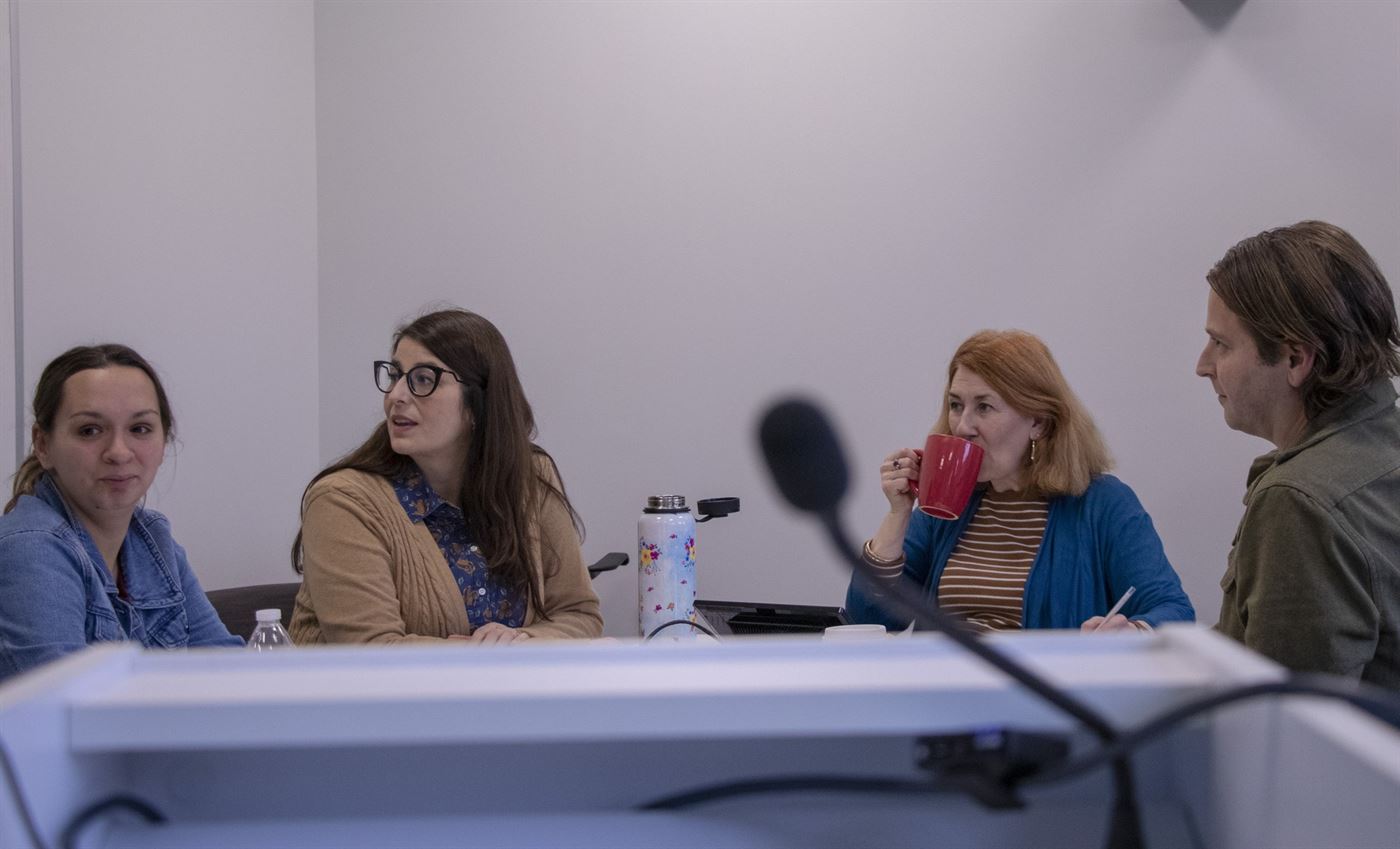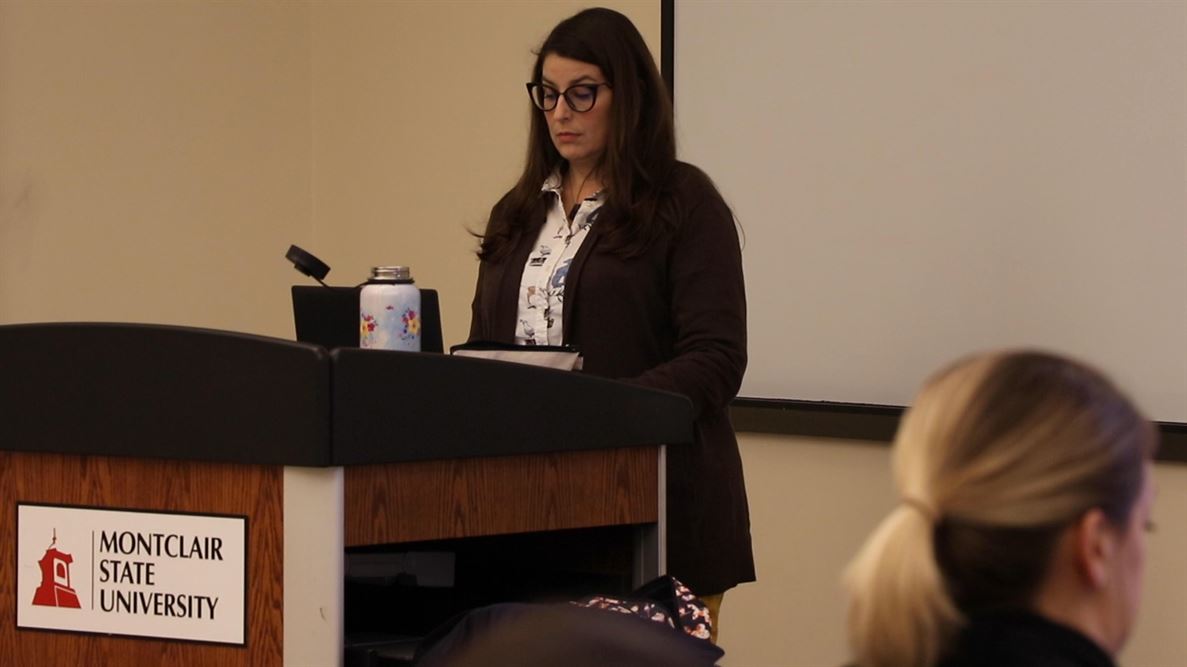Public speaking is a common anxiety that students and faculty struggle with alike, and it doesn’t improve unless it is practiced. Dr. Marylou Naumoff, the supervisor of the Public Speaking Resource Center, helps students tackle this challenge through public speaking tools and programs.
The Public Speaking Resource Center prepares the campus community for presentations, pitch-meetings and public speaking. Joining Montclair State University in 2015, Naumoff began coordinating the fundamentals of speech program and developed a rhetoric curriculum.
As the program’s coordinator, Naumoff oversees assessments, curriculum and ensures that instructors are assigned for individual speech courses.
Naumoff admits there is no shortcut to overcome speech anxiety and results come from performing.
“Our fundamentals [of speech] students primarily are freshmen,” Naumoff said. “Most students are taking this course in their first or second semester at the university. I think their greatest challenge typically is speech anxiety.”
She understands students are faced with different academic fears. Some distance themselves from math courses and others dislike writing. There is a Center for Writing Excellence on campus, but speech is unique in that students have to stand and speak in front of the class.
That is why Naumoff, and other instructors of this mandatory gen-ed course, view themselves not just as teachers but also coaches. The hope is for students to gradually overcome some of their anxiety and deliver a performance.
“We have different fears,” Naumoff said. “Sometimes people have a fear of math or don’t want to take a math course, but they don’t have to get up in front of a class then complete math problems on a board.”
The Dannis B. Eaton Speech Competition, held by Naumoff and the Speech Program, chose the topic for this year, “My Earth.”
In alignment with #FocusClimateChange, this is the first time that Naumoff has connected the School of Communication and Media’s “#Focus” project with the campus-wide competition. She is excited to add more speech-driven projects to the year-long campaign.
“Communication studies isn’t always directly involved in those efforts as some of the other areas in the School of Communication and Media,” Naumoff explained. “This was a way to build that bridge, as well as to the rest of the Montclair State community.”
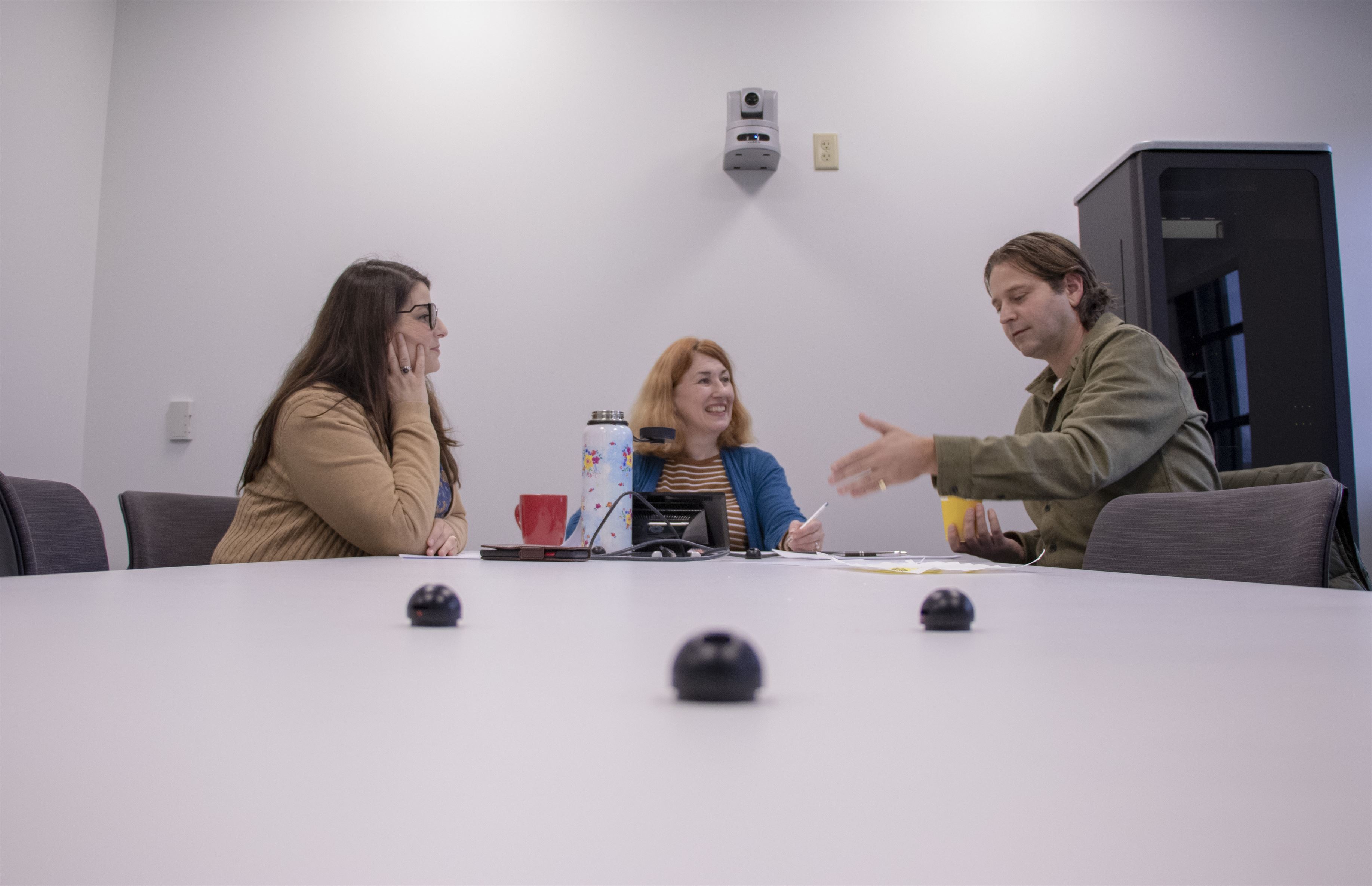
The Dannis B. Eaton Speech Competition judges deliberate the contestants.
Kristoffer Fernandes | The Montclarion
Naumoff believes there are larger, systemic questions that communication studies scholars can help approach with climate change. The speech program also stresses civic engagement.
Naumoff explained that communication studies can also impact viewership.
“For example, thinking about how to speak to different audiences about climate change,” Naumoff said. “Constructing a message [for] issues that are important to them.”
Besides fundamentals of speech, Naumoff is also an assistant professor of communication studies. She teaches several communication studies courses that propose ideas of race, gender and theoretical frameworks. She also specializes in rhetoric, American identity and cultural studies.
“I really view it as a privilege to teach,” Naumoff said. “As a faculty member, we have to teach, perform services and do research, but by far my favorite thing to do is teach.”
Certain courses concentrate on production and technical skills, but Naumoff emphasizes the pairing of critical thinking and theory with content production.
“I often tell my students in the 210 theory course, ‘in other classes you learn how to do things and in this course we’re going to think about why we’re doing them,’” Naumoff said.
Naumoff seeks to introduce concepts that offer new approaches to thought and content creation. The moments in the classroom where she can make that connection with her students is the most valuable.
“It’s that moment where something clicks and they get it,” Naumoff said. “There is no price that you can put on that, no other experience can give me the same sense of fulfillment.”
The goal for Naumoff is to allow her students to see the world differently and see a world they can shape.
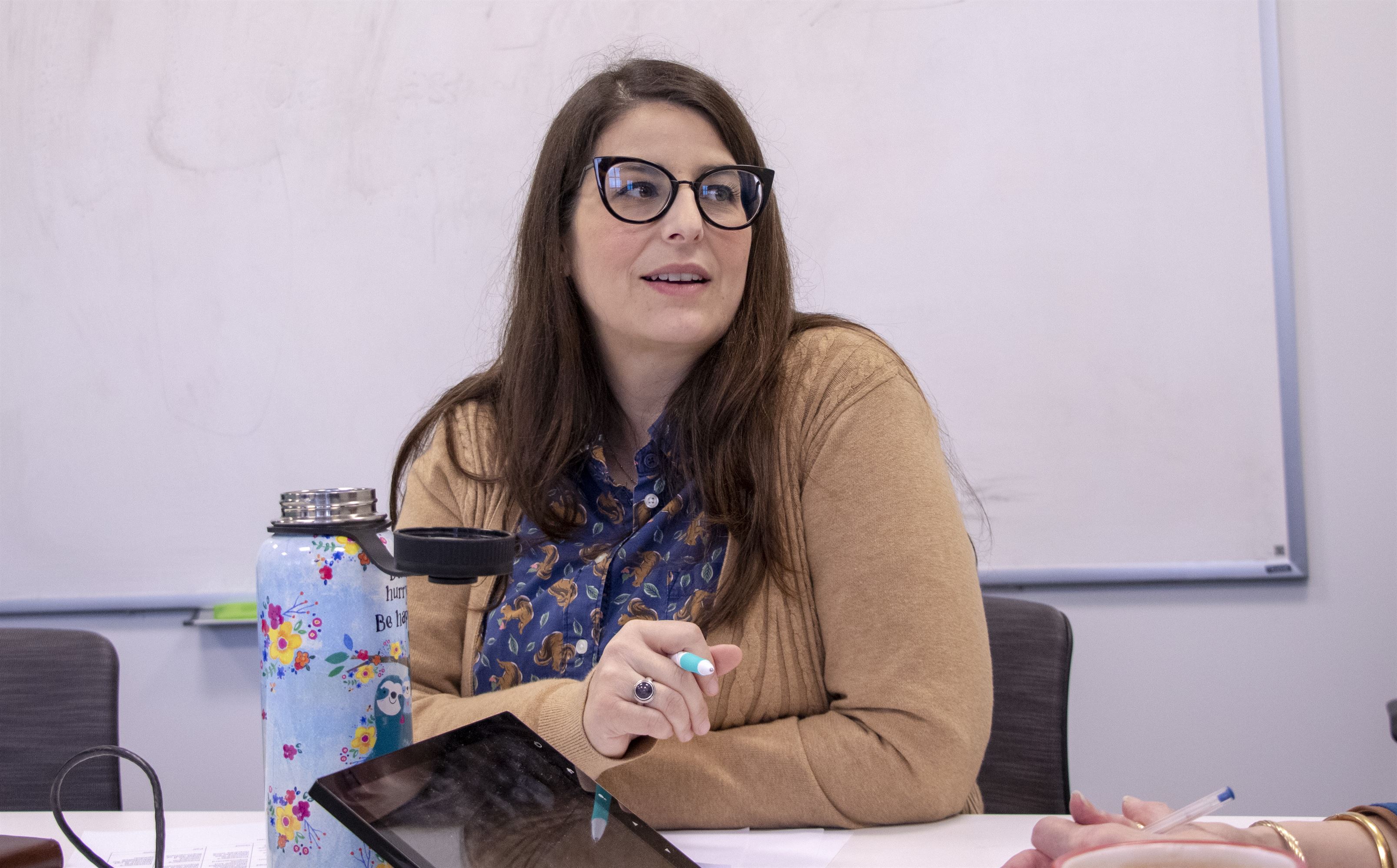
When something Dr. Naumoff teaches “clicks” with a student, there is nothing more fulfilling for her.
Kristoffer Fernandes | The Montclarion
Naumoff understands the reasons students attend college. Students are earning a degree and leveraging new skills in order to position themselves into their future career.
She knows the challenge of time management, or simply not having enough time. Those are factors that Naumoff does not downplay, but she reminds students of the value of their education.
“You’re really gaining knowledge that will help you build a life,” Naumoff said. “Not just to think of yourself as a future worker, but also thinking of yourself as a citizen, and what you can contribute to your community, to your state, to your country and to the world.”

